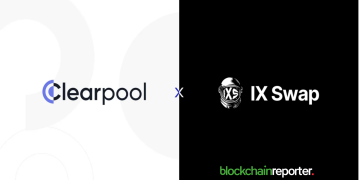The year 2023 has just begun, but demo days have already taken hold as companies’ founders work to keep balance in the turbulent crypto market. Beacon, a Web3-centric early-stage accelerator program, was created a year ago, and its flagship cohort recently graduated. On Tuesday, the teams that were a part of the first cohort, also known as Cohort 0, held a demo day during which they presented their ideas.
Sandeep Nailwal, the core contributor of Beacon and co-founder of Polygon, said: “For Cohort 0, we spoke with over 1,000 projects to end up at 15 companies in Cohort 0 with 13 graduating at our Demo Day. With the current rate of applications for Cohort 1, we’re planning to land at a similar 1% acceptance rate. We feel like Cohort 0 is our MVP of Beacon. So for this cohort, we hand-picked our favorite teams by taking calls with founders sourced through our networks.”
The three-month program is offered twice a year in the fall and spring and accepts approximately 15 to 20 participants for each of its cohorts. Mentors include Jack Lu, CEO and co-founder of Magic Eden; a multitude of venture capitalists; Rob Behnke, co-founder of Halborn; Brendan Farmer, co-lead at Polygon Zero; Dan Kim, VP of business development and listing at Coinbase; and Miles Anthony, CEO and co-founder of Decentral Games, to name a few.
Nailwal mentioned that a standard investment of $250,000 will be made for the following cohort and that Beacon will place an $8 million post-money valuation on each of the companies that participate in the program. During the first cohort, known as Cohort 0, investments were made on a case-by-case basis as the team worked to perfect its method, he explained.
Focused on a Range of Crypto Subsectors
Considering Beacon is “chain-agnostic,” most of the companies in Cohort 0 were working on cross-chain applications, according to Nailwal. Ethereum, on the other hand, came out on top of the list in terms of the number of teams developing on that blockchain. Kenzi Wang, a fundamental contributor at Beacon and co-founder of Symbolic Capital, stated at the demo day there were a total of 29 founders among the 13 companies, spread out across nine countries and 13 cities.
The firms concentrated their efforts on a variety of crypto-related subsectors, including, to name just a few, gaming, infrastructure, decentralized lending and borrowing, and developer tooling. With the exception of one firm, Community Gaming, which is already in the Series A stage, virtually all of the companies in the cohort are in the seed stage.
Beacon places a significant amount of emphasis on the development of software to fuel its accelerator. Lighthouse is the focal point of this emphasis. Lighthouse is an internal software platform at Beacon that serves the company’s founders as well as its investors: Each and every Beacon founder is granted access to the Lighthouse. If they have a Lighthouse account, they will have access to the alumni directory, which will allow them to network with other founders who share their interests and have a comparable history.
In addition, founders can use Lighthouse to research all of the approved vendors that Beacon has to offer in order to take advantage of the unique offers and discounts that are exclusive to Beacon initiatives. And finally, the third benefit is that Lighthouse maintains a list of recommended vendors who provide Beacon founders with exclusive offers and discounts on a variety of products and services.
On the other hand, Lighthouse is the platform that approved investors can utilize to connect with Beacon’s various projects. With Lighthouse, potential investors can analyze the specifics of a project, watch video pitches, learn more about the founders’ history, and then, with the click of a button, they can be linked to project founders to explore investment opportunities.
Details of the 13 Startups in Beacon’s Cohort 0
The following are the details behind the 13 startups from Cohort 0:
1. Arcana
What it does: Web3 toolkit for developers
Founders: Mayur Relekar, Aravindh Kumar
Stage: Seed
The pitch: Arcana aims to enhance the technological stack for developers with tools that facilitate the development of safe decentralized applications (dApps). Its fundamental tools consist of user authentication, data storage in a decentralized network, and access control. The platform intends to allow developers to build applications on “almost any chain” with access to its services and tools.
2. Blinkmoon
What it does: Game development studio
Founders: Hugh Behroozy, Hajeir Mazinani
Stage: Seed
The pitch: Blinkmoon is developing an independent game development studio to target the expanding Web3 market. Prior to this, its team members created visuals for “Guardians of the Galaxy” and “Game of Thrones” and worked on gaming properties such as League of Legends: Wild Rift, NBA, Dead Rising, and Rainbow Six, among others.
3. ChapterX
What it does: Web3 event experience
Founders: Chase Guo
Stage: Seed
The pitch: ChapterX is a platform for the Web3 event experience that promises to give event organizers the opportunity to make their events into one-of-a-kind experiences for attendees. The startup offers ways to engage guests with either physical events or personalized virtual worlds in the Metaverse, with features such as DAO governance or GameFi. Through its reskin mechanism, users can convert their 2D NFTs into 3D avatars, as well as explore new worlds and join communities.
4. Colexion
What it does: GameFi ecosystem
Founders: Abhay Aggarwal
Stage: Seed
The pitch: Colexion is a card-based GameFi network that intends to bring fantasy-focused Web2 games to the Web3 ecosystem. Its technology, Colexion Core, offers a variety of services, such as minting, marketplaces, bridges, and wallets, to assist traditional games in navigating the Web3 environment. As stated on its website, the company focuses on the Asia-Pacific region and has more than 15 million active users in more than 10 countries. Polygon, Brevan Howard, Jump Capital, Symbolic Capital, Firestarter, and GSR are the investors in Colexion.
5. Community Gaming
What it does: Esports platform
Founders: Chris Gonsalves
Stage: Series A
The pitch: Community Gaming intends to become a comprehensive esports competitive platform that provides the infrastructure to players in the business. The platform is supported by Ethereum and Solana-based blockchain payment technologies, and it offers players, tournament organizers, and game creators the tools necessary to create, coordinate, and take part in esports competitions. It also gives users the chance to monetize their gameplay by finishing quests, which serve as a daily content engine for generating income and discovering new games.
6. Cubist
What it does: Web3 developer tools and infrastructure
Founders: Ann Stefan, Deian Stefan, Riad Wahby, Fraser Brown
Stage: Seed
The pitch: Cubist is a developer tools and infrastructure company that attempts to introduce Web3 developers to modern software engineering methods and security. Its toolkit prioritizes delivering safer and more secure alternatives so that developers may develop, test, and deploy multi-chain and cross-chain dApps with ease. It was founded by a former chief operating officer of a financial company and computer science professors from Carnegie Mellon University and UC San Diego. The team members have spent their whole careers redesigning security for real-world systems and have produced more than 80 research papers on related issues such as computer systems, programming languages, security, and cryptography.
7. FastLane
What it does: MEV solutions for Ethereum-based blockchains and rollups
Founders: Alex Watts, Jordan Hagan
Stage: Seed
The pitch: The FastLane protocol prioritizes the generation of revenue for validators, the enhancement of effectiveness for algorithmic traders, and the reduction of stress on network participants when the network is overloaded with redundant transactions. All of these goals are accomplished without requiring validating nodes to install or manage specialized software. By monetizing propagation inefficiencies in the layer-2 blockchain Polygon and spreading the benefits to validators who participated in the process, the protocol intends to both cut down on transaction spam and enhance the overall health of the Ethereum network.
8. Meta Apes
What it does: Web3 game
Founders: Taylor Shim, Nicholas Carr
Stage: Seed
The pitch: Meta Apes is a free-to-play, win-to-earn Web3 mobile game based on the BNB Application Sidechain (BAS). Players are able to build their very own cities and towns while also competing with and exploring those of other players in an effort to win the “race to space.” The objective of the game is to integrate Web3 aspects with more classic gaming components, such as massively multiplayer online (MMO) strategies and in-game currency systems. The firm’s collective experience includes stints at companies such as Ubisoft, Gameloft, Zynga, AppLovin, and Epic.
9. Mystic Moose
What it does: Web3 gaming developer
Founders: Mike Levine
Stage: Seed
The pitch: Mystic Moose is a gaming studio, publisher, and Web3 platform that was established by a group of gaming industry veterans who formerly held positions at companies such as Activision, LucasArts, and Electronic Arts. Planet Mojo, the company’s first game, is a browser-based server of interconnected games. It was created on top of the company’s scalable backend technology known as Sumatra. Mojo Melee, the company’s auto-chess game, is now undergoing alpha playtesting, and it has plans to launch fully on browsers and mobile devices during the first quarter of this year. Animoca Brands, Republic Crypto, and Polygon Studios are among the companies that have provided financial support to the studio.
10. Nillion
What it does: Web3 infrastructure
Founders: Alex Page, Andrew Yeoh, Andrew Masanto
Stage: Seed
The pitch: Nillion is an infrastructure startup for Web3 that is primarily concerned with protecting the storage, computation, and fragmentation of data over the internet. Andrew Yeoh, the firm’s founding chief marketing officer, was quoted as saying that “Nillion is a deep technology infrastructure project. While blockchains decentralize finance, Nillion aims to decentralize everything else and the rest of data.” The company was started by a group of individuals who formerly worked at Uber, Indiegogo, and Hedera Hashgraph, in addition to executives from Coinbase and Nike. According to a statement released by Nillion CEO Alex Page, the company made a “conscious decision” to gather more than $20 million from over 150 investors in December 2022. This was done to prevent concentrated control.
11. Davos Protocol
What it does: Stable asset lending protocol
Founders: Varun Satyam, Julian Hayward, Filipe Gonçalves
Stage: Seed
The pitch: According to its website, Davos Protocol is home to its stable asset, DAVOS, which is supported by its monetary policy that balances weekly yield production and price stability by leveraging liquid staking. Users have the opportunity to borrow DAVOS with liquid staking tokens serving as collateral thanks to this feature. Additionally, users have the ability to supply stable asset pairs in order to provide liquidity, farm yield, and receive rewards. The group’s goal is to increase the use of blockchain technology in everyday life by offering borrowers and investors financial incentives to do so through their protocol. Polygon and Ankr are two of the company’s strategic partners.
12. Timeswap
What it does: Decentralized lending and borrowing protocol
Founders: Ameeth Devadas, Harshita Singh, Ricsson Ngo
Stage: Seed
The pitch: Timeswap is an automated market maker (AMM) system that is powered by Polygon. This protocol also functions as a decentralized lending and borrowing platform. In addition to enabling users to build any Ethereum-based ERC-20 token pool by providing the necessary liquidity, its primary characteristics include variable interest rates and collateral considerations. This gives users the freedom to determine the risk-return profile that is most suitable for them. The platform has completed over $4 million worth of lending, borrowing, and liquidity volume on its protocol without offering any token incentives since it was first launched in August 2020.
13. Ylide
What it does: Decentralized protocol for wallet communication
Founders: Ignat Shapkin, Kirill Zubkov, Danila Simonov
Stage: Seed
The pitch: Ylide is a decentralized protocol for wallet-to-wallet communication that enables end-to-end encryption, multichain messaging, and data storage within smart contracts. The development team says that in addition to its own mail client, it also includes tools that enable developers to easily include communication functions into their projects, “as easily as building a Lego set.”






















